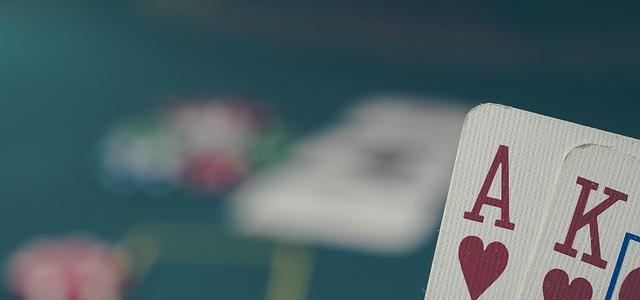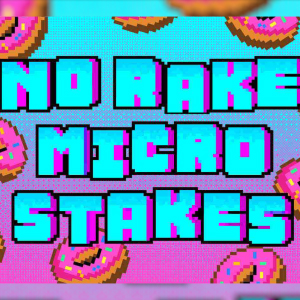Mastering Poker Psychology: Casino Tops Online Tips for Mental Toughness at the Table
1 year ago

15 Mar
The world’s most successful poker players make millions of dollars a year. They consistently make the final table of the big tournaments and earn a pretty penny through sponsorships and endorsements. It’s a lucrative career, but only if you know what you’re doing.
Being good at poker requires more than hand knowledge, basic bluffing skills, and knowing when to hold/fold ‘em. You need to have the right mindset, and that’s often what sets professionals apart from amateurs.
We asked the casino and online poker specialists at Casino Tops Online for their tips on mastering poker psychology. This is what they had to say.
If You’re In, You Have a Chance
One of the greatest challenges for novice players is overcoming tilt, the name given to the feelings of frustration and anger that you feel when things aren’t going your way.
It usually begins with a bad beat, which is when the player seems destined to win, only for the final card to go against them and gift their opponent the win. It’s frustrating, it’s annoying, and it feels incredibly unfair. That wasn’t supposed to happen!
Usually, players take bad beats poorly. They get caught up in the frustration and feel like everything is lost, so they start making rash decisions. On most occasions, they’ll go all-in on the next hand, just asking for a player with a good hand to wipe them out.
It’s a reckless move, and if you want to be a better player, it’s something you need to avoid. Rather than adopting an “all or nothing” attitude following a bad beat, take it on the chin and remember that if you’re still in the game, you can still win it.
Watching major online poker tournaments might help. It’s very rare for the person who has all of the early luck and the biggest early chip stack to be the eventual winner. More often than not, the person who goes on to win the tournament has experienced a series of ups and downs, a rollercoaster ride that may have even seen them fall to just a handful of chips at one point. It happens—that’s poker.
Don’t let your emotions get the better of you.
Don’t Take it Personally
In the above example, you’re not just going all-in because you’ve given up and are frustrated with yourself. A lot of that frustration is directed at the other player, the one who dealt you the bad beat. It seems unfair that they could have had so much luck. It’s clear to you that you’re the better player and made all the right moves and they’re just a newbie who got lucky. But the truth is that we all get lucky. We all dish out as many bad beats as we take. It’s not personal, and it’s definitely not the other player’s fault.
On the off chance that they make it personal and start needling you, whether by claiming that they are better or mocking your bad luck, just let them talk. Absorb it, stay calm, and deal it back to them when the tables turn. Ultimately, poker is about making your opponents play bad hands and call your good hands. If you can make someone frustrated, it means they’ve lost their cool and are more likely to make the moves you need them to make.
Practice Self Care
Poker tournaments run for many hours and the biggest ones stretch into several days. It’s a long time to remain seated, especially if you’re hunching over a table, staring at cards, and stressing over whether you’re about to get knocked out.
It’s imperative that you practice self-care, keeping your mental and physical health strong. Not only will it keep you healthy in general, but it’ll also ensure you’re better prepared for long poker sessions, keeping your focus and concentration high well into the small hours of the morning:
- Get Plenty of Sleep: If you’re not sleeping enough, getting a few extra hours a night could make a massive difference to your health. You’ll stress less and focus more.
- Eat Well: Fill up on fruits and vegetables, minimizing processed food and focusing on high-quality protein and fat, as well as complex carbs and plenty of fiber.
- Drink More Water: You might not want to drink lots of water at the table, as you’ll constantly be rushing to the toilet, but it’ll keep you healthy and you’ll have the breaks you need to use the toilet.
- Sit Straight: Try not to slouch when you’re at the table—it’s a surefire way to get a lifetime of back problems.
- Exercise: Get plenty of cardio when you’re not at the table and work on building your core and back using resistance exercises. If you’re spending your days slouched on the couch and your nights slouched over the poker table, your career as a poker pro will be very short-lived.
Avoid Alcohol
It might seem like a good idea to enjoy a few glasses of wine or beer while you play. You probably do it when you’re playing a few games with friends, and if you’re playing at a casino, you’ll likely have servers bringing you cheap or even free drinks to the table. But alcohol is not your friend when it comes to gambling. Not only does it dull your senses, making you more prone to overlooking obvious signs, but it also strips you of inhibitions and could lead you to do things you wouldn’t usually do.
A little alcohol is all it takes to turn a good read and a sensible bet into a terrible read and a reckless all-in. Also, as noted previously, poker games run for many hours and often go late into the night. If you drink throughout this time, you will be very drunk by the end; if you just have a few early drinks and then stop, you’ll be very tired. Either way, it’s not going to help your poker abilities.
Prepare to Sit Out a Few Hands
You don’t have to play every hand. Live poker games are long and slow. A single hand can take many minutes, as everyone is given time to act and there are several hands. So, don’t be afraid to sit out a few hands. You will lose the ante (if there is one) and the small/big blind if it’s your turn, but unless you’re short-stacked, those losses will count for a very small fraction of your total chips.
Use the break to stretch your legs, head for the toilet, or even get a breath of fresh air. If the tournament has been going for a long time and you’re there by yourself, use the break to call a partner or a friend. In the short term, you’ll lose a few chips and might miss an important hand, but in the long term it could make you fresher, more focused, and better prepared for the next few hours.
Take Regular Breaks
Every time there is a scheduled break, take it. Unlike sitting out hands, you won’t lose any chips or miss any action. The breaks are usually short, but you will have enough time to stretch, walk around a bit, and use the toilet. Even if you don’t feel like you need to, it’s important to step away from the table and reset.
Practice Mindfulness
Mindfulness can make a massive difference in any sport. It’s also very simple, and it’s something that you can do at the table and during the many breaks.
In simple terms, mindfulness is the act of being more self-aware and more in control. It’s a series of practices that revolve around mediation. Begin by finding time alone—away from the poker table—sitting in a comfortable position, closing your eyes, and breathing deeply. Breathe in through your nose and out through your mouth and try to focus on your breath.
It may help to envisage that you’re breathing in light and breathing out darkness. It’s not about the power of positive thinking, it’s just about shifting your thoughts from the random distractions that enter your head and focusing on something simple. Do this for 20 minutes or more every day and you should notice a huge difference. It will make you mentally and emotionally stronger. What’s more, if you feel yourself losing control at the table, you can take a few moments to yourself, practice your breathing, and regain control before continuing.
Summary: Master Poker Psychology
Poker is a mixture of strategy, skill, knowledge, and patience, with a little luck thrown in for good measure. It’s a game that you master by playing, studying, and constantly seeking ways to improve. Everyone can do these things if they have enough time, but not everyone has the ability to keep their emotions under control during an extended poker session. So, if you’re ready to make the step up from novice to pro; from part-time to profitable, follow the tips outlined above.
You might not be the next World Series of Poker Main Event champion, but even if you find yourself on the final table of a regional event, you could still walk away with a 5 or 6-figure sum, as well as a new lucrative career/hobby.






Comments
You need to be logged in to post a new comment